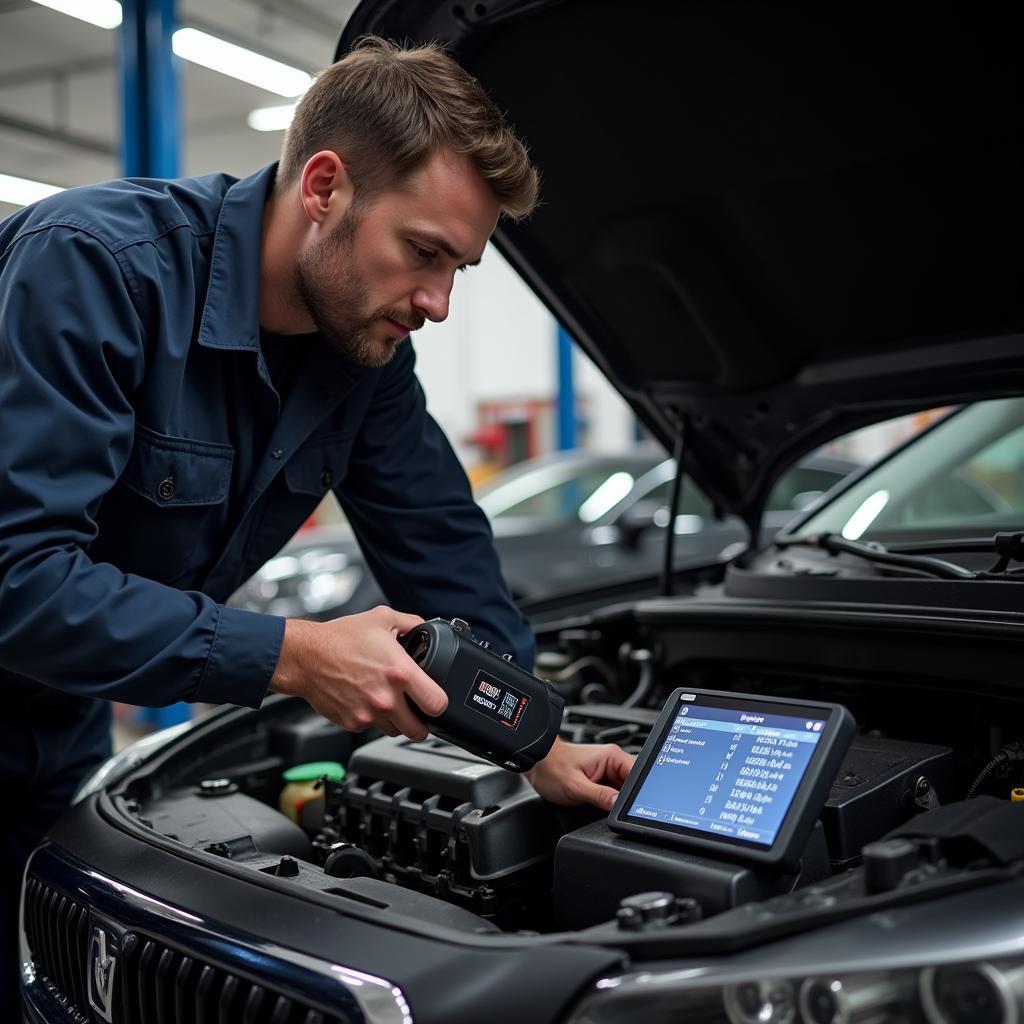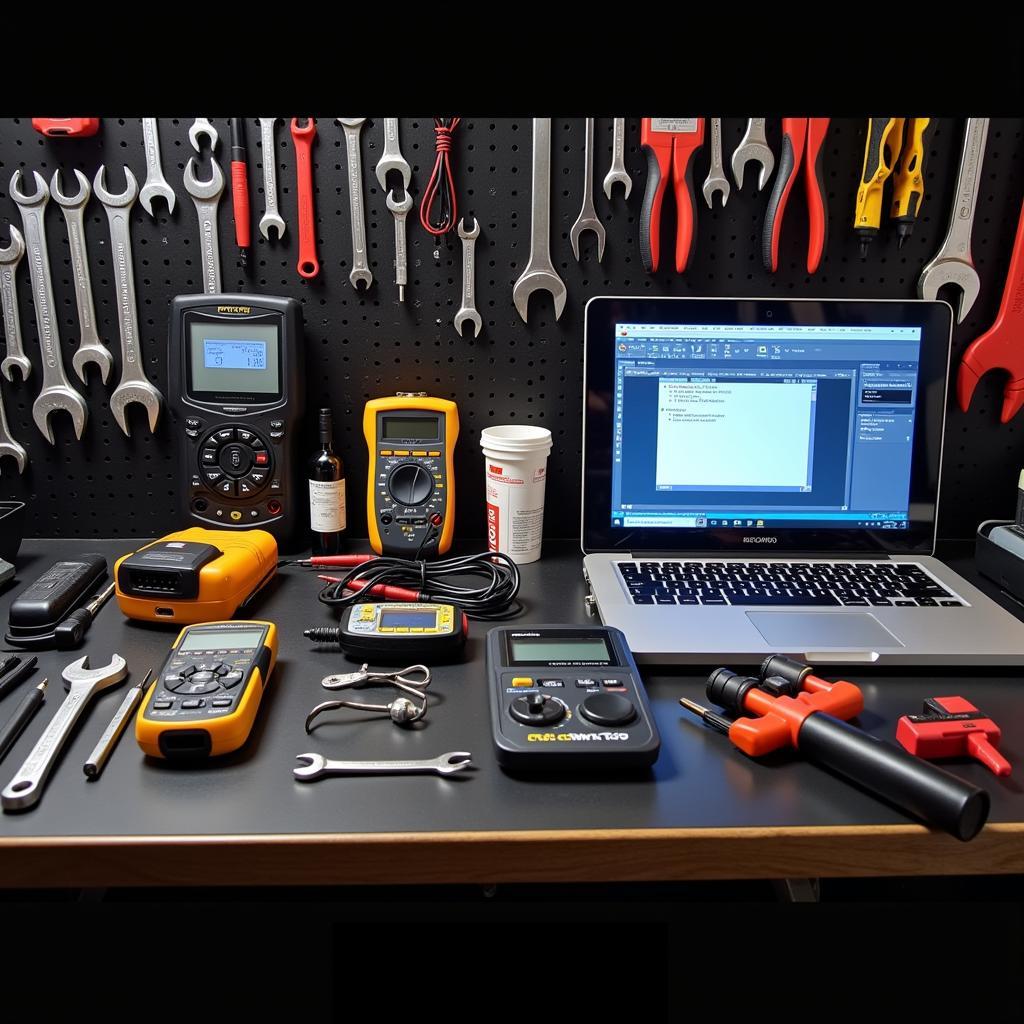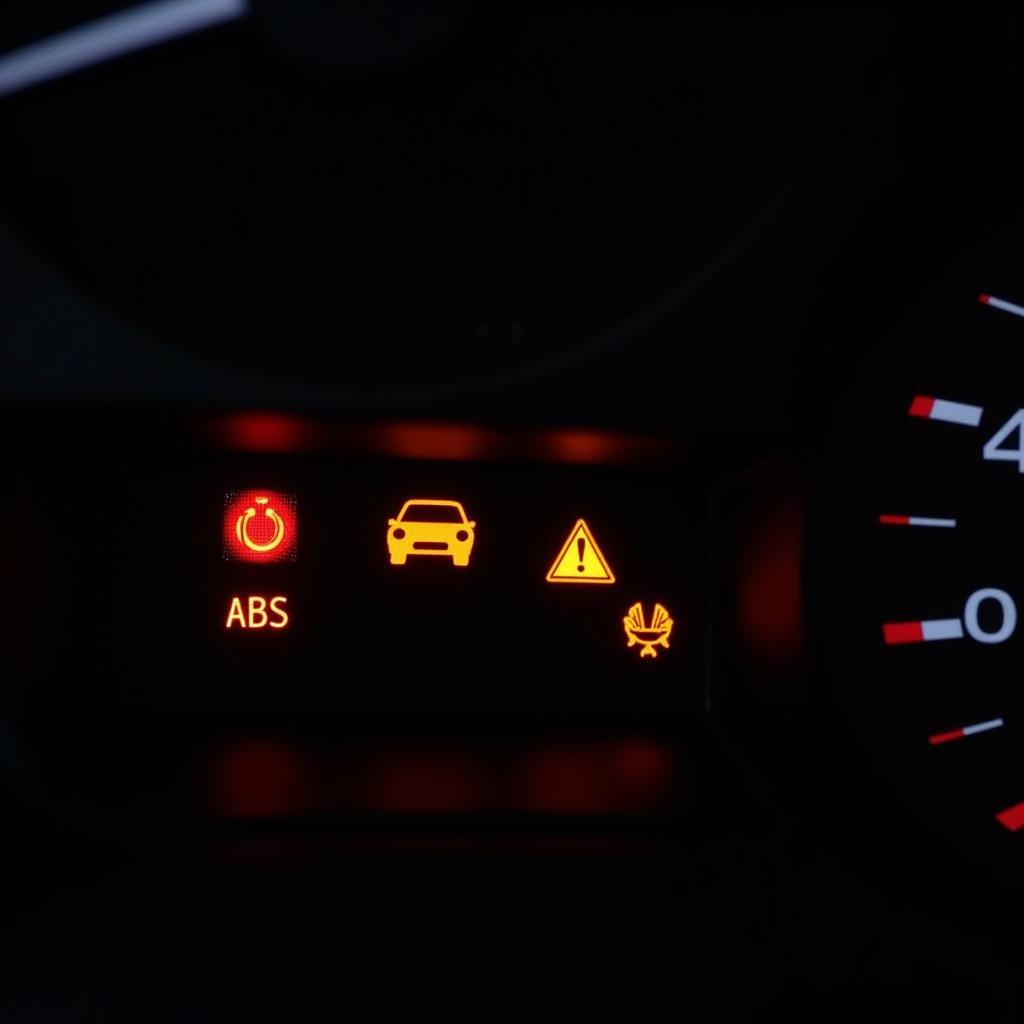Finding the dreaded “check engine” light glaring at you from your dashboard can be stressful. Modern vehicles are complex machines, and figuring out the root cause of a problem often requires specialized knowledge and equipment. This leads many car owners to wonder, “Who Can Do A Car Diagnostic Test?”. The good news is you have several options, each with pros and cons regarding cost and convenience.
Decoding the Check Engine Light: Why Car Diagnostic Tests Matter
Before we dive into the “who”, let’s understand the “why” behind car diagnostic tests. These tests use a specialized tool, called an OBD-II scanner, to communicate with your car’s computer system. This system continuously monitors various sensors throughout your vehicle, logging error codes when something isn’t right.
A car diagnostic test reads these codes, translating them into understandable language, essentially giving you a glimpse into your car’s health. This information is crucial for identifying the issue and making the necessary repairs.
 Mechanic performing a car diagnostic test
Mechanic performing a car diagnostic test
The DIY Approach: Can I Run a Car Diagnostic Test Myself?
The short answer is yes, you can perform a basic car diagnostic test yourself. Affordable OBD-II scanners are readily available online and at auto parts stores. These scanners, often paired with mobile apps, can read and display basic error codes, giving you a starting point for troubleshooting.
Expert Insight:
“While DIY diagnostic scanners can be helpful for simple issues, they don’t offer the depth of information or functionality of professional-grade tools,” cautions John Miller, Senior Automotive Technician at Miller’s Auto Repair. “For complex issues or if you’re uncomfortable interpreting the codes, it’s best to seek professional help.”
Calling in the Pros: Who Offers Professional Car Diagnostic Services?
If you prefer leaving the diagnostics to the experts, here are your primary options:
-
Dealerships: Dealerships employ technicians trained specifically on your car’s make and model, giving them an edge in diagnosing and repairing brand-specific issues. However, dealership services often come at a premium price.
-
Independent Mechanics: Independent mechanics offer a balance between expertise and affordability. Many are highly skilled and equipped to handle various car makes and models.
-
Auto Repair Chains: National chains like Midas, Meineke, and Firestone provide standardized diagnostic services at competitive prices. They are a convenient option for routine maintenance and common repairs.
 Assortment of tools used for car diagnostics
Assortment of tools used for car diagnostics
Factors to Consider When Choosing a Diagnostic Service Provider
- Expertise: For complex issues or specific car makes and models, specialized knowledge is crucial.
- Cost: Get quotes from multiple providers to compare pricing for diagnostic tests and potential repairs. You can find out more about diagnostic costs in our article: how much do car diagnostics cost.
- Convenience: Consider factors like location, appointment availability, and estimated turnaround time.
- Reputation: Look for online reviews, ask for recommendations, and check for certifications to gauge the provider’s reliability.
Beyond the Basics: What Else Can a Car Diagnostic Test Tell Me?
Modern car diagnostic tests go beyond simply reading error codes. They can provide a wealth of information about your car’s performance, including:
- Live Data Stream: Monitoring real-time data from various sensors, such as engine speed, coolant temperature, and oxygen sensor readings.
- Component Activation: Testing individual components like fuel injectors, solenoids, and actuators.
- System Adaptations: Resetting or relearning system parameters after repairs or component replacements.
These advanced capabilities are invaluable for diagnosing intermittent issues, verifying repairs, and optimizing vehicle performance.
Don’t Ignore the Warning Signs: The Importance of Timely Diagnostics
Ignoring a check engine light or delaying a car diagnostic test can lead to more severe and costly problems down the line. A seemingly minor issue, if left unaddressed, can escalate into major engine damage or safety hazards.
 Close-up of a car’s dashboard with warning lights illuminated
Close-up of a car’s dashboard with warning lights illuminated
Conclusion: Take Charge of Your Car’s Health
Understanding “who can do a car diagnostic test” empowers you to address car troubles proactively. Whether you choose the DIY route or rely on professional expertise, don’t underestimate the importance of this vital tool in maintaining your vehicle’s health and longevity. Remember, timely diagnostics save you time, money, and potential headaches on the road. For guidance on using a car diagnostic scanner, refer to our comprehensive guide: how to use diagnostic scanner for cars.
FAQ
-
How long does a car diagnostic test take? While the actual test itself might only take a few minutes, the overall diagnostic process can vary. To learn more about the factors influencing the duration, check out our article: how long does a car diagnostic test take.
-
Can I drive my car with the check engine light on? It depends on the severity of the issue. While some problems might allow for temporary driving, it’s best to get a diagnostic test as soon as possible to avoid potential damage or safety risks.
-
Will disconnecting the battery reset the check engine light? Yes, temporarily disconnecting the battery can reset the check engine light. However, this doesn’t address the underlying problem. The light will reappear if the issue persists.
-
Does my car need to be warmed up for a diagnostic test? It’s generally recommended to have your car at operating temperature for more accurate readings, but it’s not always essential.
-
Are car diagnostic tests covered under warranty? Warranty coverage for diagnostic tests varies depending on your vehicle’s warranty terms and the nature of the problem.

Leave a Reply